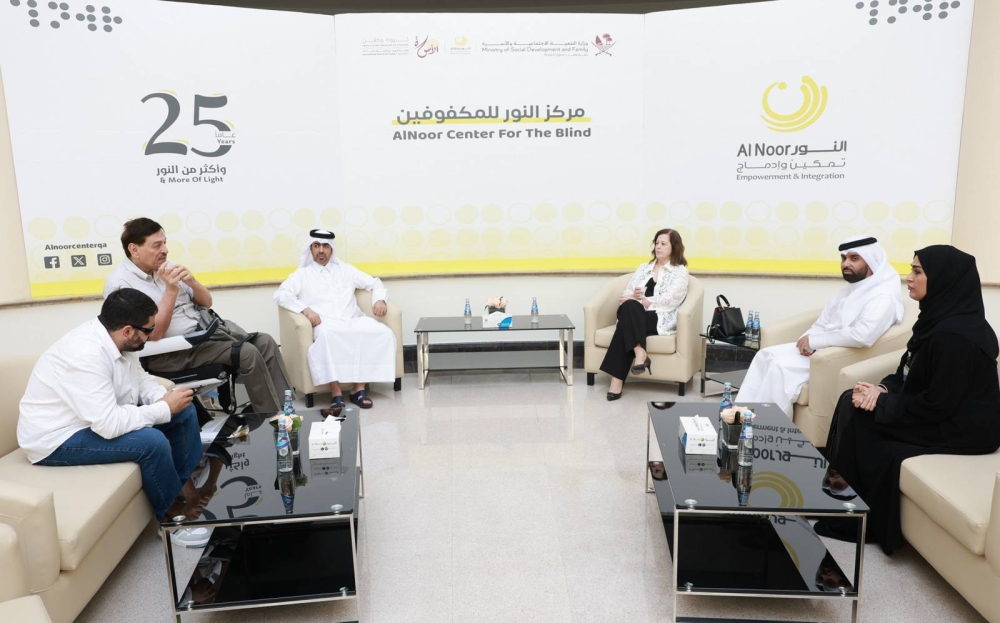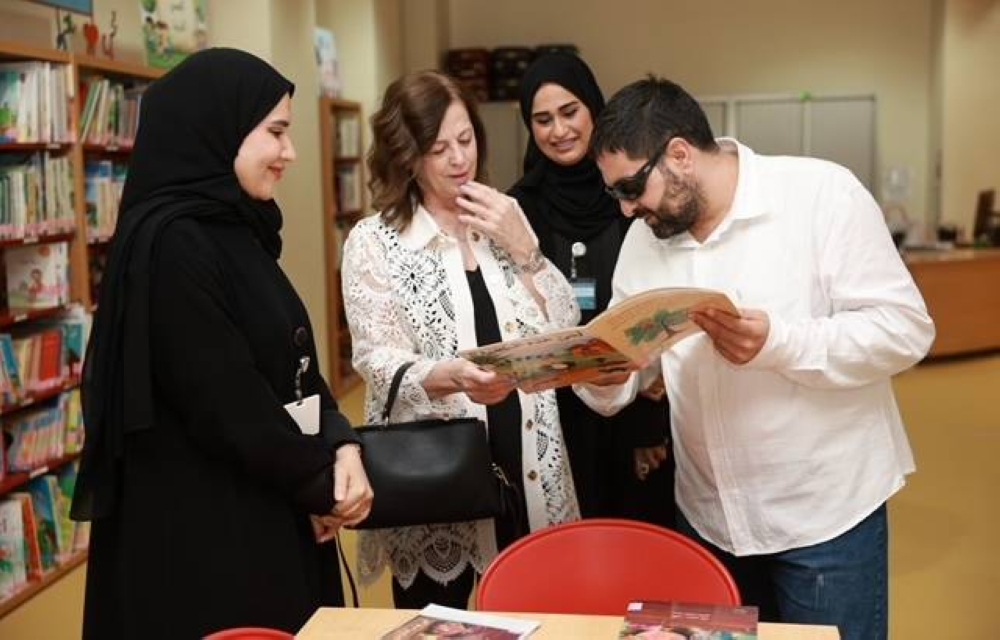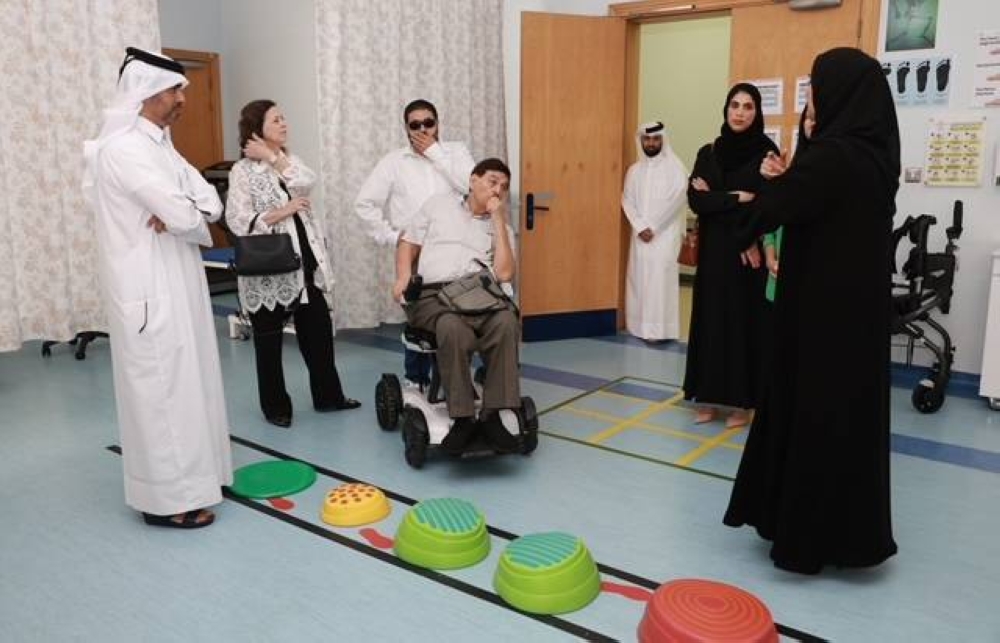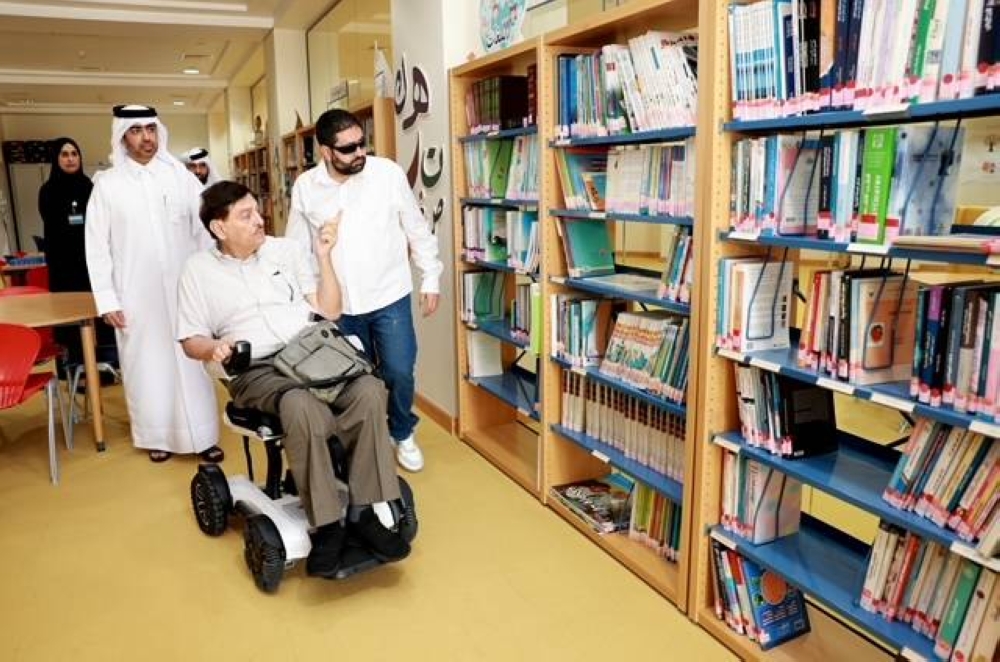A delegation of regional experts from the United Nations visited Al Noor Centre for the Blind, to examine and exchange best practices with regards to supporting and rehabilitating individuals with visual impairments.
Al Noor Centre for the Blind is one of the Ministry of Social Development and Family (MSDF)'s Qatar Foundation for Social Work's centers.
The delegation included coordinator of the UN Human Rights Training and Documentation Centre for South-West Asia and the Arab Region Ishraq bin Al Zain, President of the National Association for the Rights of Persons With Disabilities in Lebanon Dr. Nawaf Kabbara, and Director General of the Arab Organization for Persons with Disabilities, World Health Organization representative Jahda Abou Khalil, joined by executive director of Al Noor Center for the Blind Mishaal Abdullah Al Nuaimi.
During the visit, the UN delegation conducted a thorough tour of the center, learning about its services, including the medical, nursing, and psychological care provided by the psychology unit, and the physical therapy unit, which aims to help members achieve autonomy. They also explored the optical clinic services, which specialize in assessing visual functions and determining eligibility for the center's services and training and rehabilitation programs, which assesses and trains individuals with visual impairments over the age of 16, equipping them with professional skills to help them secure jobs that match their abilities.
Additionally, the delegation reviewed the workshops designated for members who require sheltered work environments.
Commenting on the visit, director of the communication and media office at Al Noor Center for the Blind Shaheen Al Sulaiti stated that it is a testament to the centers deep commitment to providing the best services and facilities for individuals with visual impairments. He emphasized the centers appreciation for the UNs interest in supporting and promoting the rights of this crucial segment of society and noted that the visit would enhance cooperation with international organizations and provide additional support for the programs.
Al Sulaiti also expressed hope that the visit would help in forming new partnerships with international and local bodies, thereby supporting the centers efforts to be a model in achieving its comprehensive vision to improve the lives of people with visual impairments and enhance their integration into society.
During a discussion session with the centers administration, the delegation exchanged experiences and viewpoints with the center on improving the services provided, leveraging outstanding global practices to expand training programs and empower individuals with visual impairments.
The visit comes at a critical time as the United Nations is focusing on enhancing the rights of persons with disabilities and ensuring their access to appropriate education and training, reflecting the international community's commitment to achieving the world Sustainable Development Goals.




